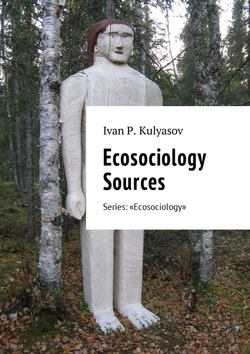Читать книгу Sources ecosociology. Series: «Ecosociology» - I. P. Kulyasov - Страница 5
Environmental theories
Sociological naturalism
ОглавлениеNaturalism in sociology is inherent to theories that explain social development, interaction and phenomena by various natural factors – geographical and climatic conditions, features of the landscape, flora and fauna, biological and racial aspects of human nature. To explain social phenomena and processes, naturalists used methods of natural sciences. In the mid-19th – early 20th century, naturalism in sociology was devoted into social biologism and social mechanicism.
Social biologism proceeds on the basis that social phenomena and laws of the society’s functioning and development are analogous to biological laws, and that they can be studied using biological sciences and their methods. It comprises the concepts of social evolutionism and social Darwinism, which will be considered in more detail below. Social mechanicism, while sharing this view, prefers using physical sciences and their methods.
Representatives of both schools are correct in their own fashion, as they appeal to nature, its phenomena and laws. However, with the continuing development of sociology and its own methods in the second half of the 20th century and ever since, naturalists have tried to absorb criticism and new empirical data to elaborate two main approaches – ontological and methodological. Both are based on the understanding that science is universal and the world is cognizable.
The supporters of ontological naturalism are positive that things social can be narrowed down to things physical, and that all explanations about the social environment or behavior of an individual can be found within the framework of natural sciences. In the social process, they see only physiological characteristics and physical substances (substantialism). For example, this view is now quite typical for geneticists, biochemists and neurobiologists. In sociology, this trend is represented by behavioral sociology and biosociology.
Those who advocate methodological naturalism are positive that the social sphere has its own, unique features. However, natural-science techniques are sufficient for obtaining knowledge about the social sphere (reductionism) and for linking it with the knowledge about the biotic and abiotic spheres. Among sociological theories, this approach is typical for structural functionalism and neo-evolutionism, theories of system analysis, social exchange and other theories.
Despite the apparent contradiction, one can see that these two approaches in naturalism, as well as modern achievements of natural and social sciences, complement each other. Therefore, we will continue our search for the sources of ecosociology, which is, in fact, inter-disciplinary.
